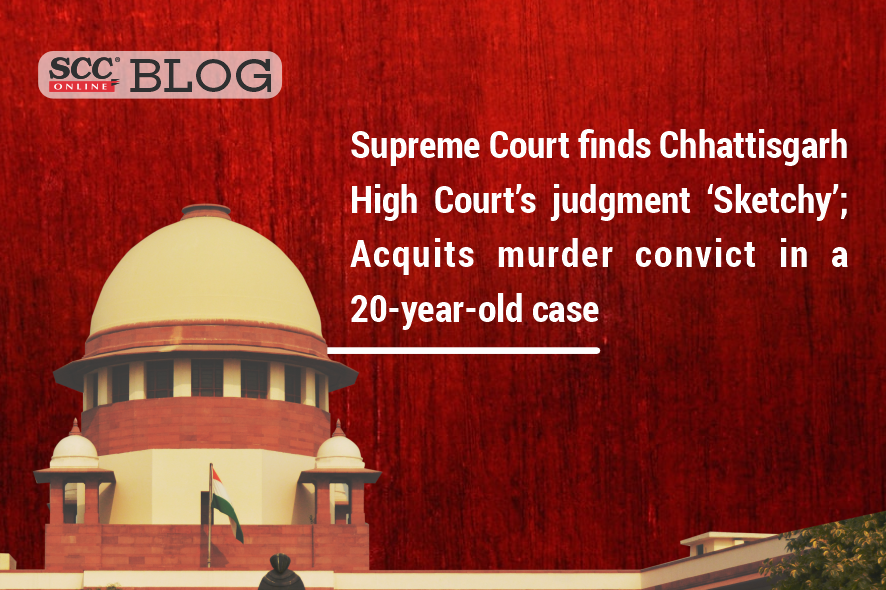Supreme Court: In a criminal appeal against the conviction in a murder case by the Chhattisgarh High Court, the division bench of B.R. Gavai and Sanjay Karol*, JJ. set aside the findings of guilt and sentence arrived in the impugned judgment and acquitted the convict/appellant.
The Trial Court convicted both the accused in relation to offences punishable under Section 302 read with Section 34 of the Penal Code, 1860 (‘IPC’) and Sections 201 read with Section 34 IPC and sentenced them to serve imprisonment for life and fine in relation to the offence under Section 302 as also suffer imprisonment for seven years and fine in respect of the offence punishable under Section 201 IPC.
However, in an appeal, the High Court upheld the conviction of one convict/appellant in relation to all the offences and the sentences in terms thereunder and acquitted another convict and held that there is no reason “whatsoever” to disbelieve the testimonies of witnesses qua the issue of extrajudicial confession. Thus, the present appeal was filed.
The Court said that the impugned judgment is sketchy. The presumption of the guilt of the convict by both the Courts below is based on improper and incomplete appreciation of evidence which has resulted in travesty of justice.
The Court noted that the prosecution case rests upon three circumstances, the alleged confessional statement of convict made before witnesses; prior animosity between him and the deceased; and the recovery of the keys of the shop of the deceased and his currency notes amounting to Rs. 300/-.
The Court found the testimony of the Investigation Officer to be wholly unworthy of any credence, unbelievable; and the witness to be unreliable. Further, it said that the sole basis for the Investigation Officer to have arrested the convict for having committed the crime is his extra judicial confession, apart from being inadmissible, is of no use, as it has not led to recovery of any new fact. Apart from sending the dead body for post-mortem, the Investigation Officer does not state what investigation he conducted on the crime spot. The investigation conducted is absolutely shady and has been done in a casual manner.
Placing reliance on Kali Ram v. State of H.P., (1973) 2 SCC 808, the Court noted that the cardinal principles in the administration of criminal justice in cases where heavy reliance is placed on circumstantial evidence, is that where two views are possible, one pointing to the guilt of the accused and the other towards his innocence, the one which is favourable to the accused must be adopted.
The Court stated that the circumstances taken together do not establish conclusively the guilt of the accused. Thus, neither the chain of circumstances has been completely established nor the guilt of the accused alone, having committed the crime to be proven, much less beyond reasonable doubt.
The Court said that it does not interfere with the concurrent findings of fact of the Courts below, and step in only in exceptional cases or where gross errors are committed, overlooking crying circumstances and well-established principles of criminal jurisprudence leading to miscarriage of justice.
Therefore, it was held that both the Courts below, erred in finding the convict guilty of having committed the crime.
[Pradeep Kumar v State of Chhattisgarh, 2023 SCC OnLine SC 275, decided on 16-03-2023]
*Judgment authored by: Justice Sanjay Karol.







